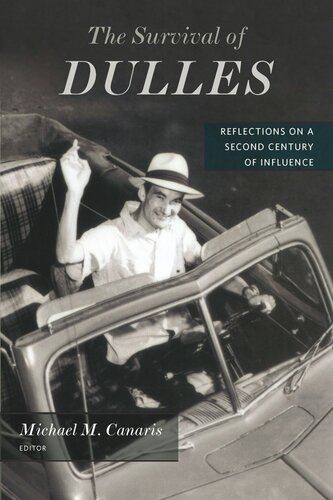

Most ebook files are in PDF format, so you can easily read them using various software such as Foxit Reader or directly on the Google Chrome browser.
Some ebook files are released by publishers in other formats such as .awz, .mobi, .epub, .fb2, etc. You may need to install specific software to read these formats on mobile/PC, such as Calibre.
Please read the tutorial at this link: https://ebookbell.com/faq
We offer FREE conversion to the popular formats you request; however, this may take some time. Therefore, right after payment, please email us, and we will try to provide the service as quickly as possible.
For some exceptional file formats or broken links (if any), please refrain from opening any disputes. Instead, email us first, and we will try to assist within a maximum of 6 hours.
EbookBell Team

0.0
0 reviewsThis collection, marking the centenary of Avery Dulles’s birth, makes an entirely distinctive contribution to contemporary theological discourse as we approach the second century of the cardinal’s influence, and the twenty-first of Christian witness in the world. Moving beyond a festschrift, the volume offers both historical analyses of Dulles’s contributions and applications of his insights and methodologies to current issues like immigration, exclusion, and digital culture. It includes essays by Dulles’s students, colleagues, and peers, as well as by emerging scholars who have been and continue to be indebted to his theological vision and encyclopedic fluency in the ecclesiological developments of the post-conciliar Church. Though focused more on Catholic and ecumenical affairs than interreligious ones, the volume is intentionally outward-facing and strives to make clear the diverse and pluralistic contours of the cardinal’s nearly unrivaled impact on the North American Church, which truly crossed ideological, denominational, and generational boundaries. While critically recognizing the limits and lacunae of his historical moment, it serves as one among a multitude of testaments to the notion that the ripples of Avery Dulles’s influence continue to widen toward intellectually distant shores.
Assesses Dulles’s contribution to American Catholic theology and argues for his ongoing relevance among emerging scholars of the 21st century